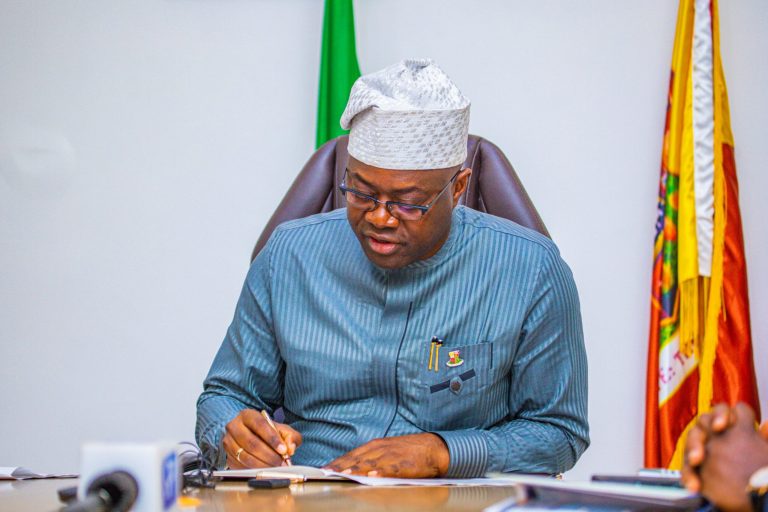The Oyo State Governor, Seyi Makinde, has formally signed the Oyo State Electricity Regulatory Bill, allowing state indigenes to hold the government accountable for all aspects of power supply.
The bill also aimed to attain energy sufficiency in the state in accordance with the 2023 Electricity Act signed by President Bola Tinubu.
According to the Act, states and companies are permitted to generate, transmit and distribute electricity.
While speaking at the signing, Makinde highlighted that the step exemplifies the workings of a true federating unit, reflecting a commitment to empowering local communities.
He also mentioned that signing marks pivotal moment for the state’s energy infrastructure and governance.
Backstory
Earlier, Nairametrics reported that Governor Seyi Makinde is collaborating with the British American Tobacco (BAT) Ibadan Plant to ensure energy sufficiency and sustainability in the state.
He also stated that the state will be commissioning 11 new power plants of which 10 are gas-powered while the other works with solar energy.
The Governor also lauded the company for the role they have played in the economic development of the state and the country in general.
He said,
- “The state will look forward to working with BAT to improve electricity supply in the state.
- “We are going to be commissioning a 1.4-megawatt solar plant. This is pretty much in line with our aspiration in Oyo State.
- “For us, energy sufficiency is a big part of this administration. When I came in, there was no Energy Ministry, but we now have,”
What you should know
- In May 2023, President Tinubu signed the 2023 Electricity Act into law which is a replacement for the Electricity and Power Sector Reform Act of 2005.
- The Act is expected to empower states, companies, and individuals to generate, transmit and distribute electricity.
- The Electricity Act was first passed in July 2022 under the Muhammadu Buhari administration.
- According to the stipulations of the Act, states can issue licenses to private investors who can operate mini-grids and power plants within the state. However, the Act precludes interstate and transnational electricity distribution.
- The Act mandates how NERC can transition regulatory responsibilities from itself to state regulators when they are established. Until a state has passed its electricity market laws, NERC will continue to regulate electricity business exclusively carried out in those states.
- So far, only Lagos, Edo, Kaduna and Oyo states have electricity market laws and can regulate their market.

